Clinical Dermatology Research
Our clinical research trials are monitored by the FDA and the Institutional Review Boards, or IRB. Our team is always involved in researching the efficacy of new products or procedures in the interests of our own patients, and patients worldwide.
Home of Dr. Jen
as seen on

Overview
Our Clinical Research Department at Armstrong MD is dedicated to establishing improved treatments for skin conditions and diseases through clinical trials monitored by the Federal Drug Administration (FDA) as well as the Institutional Review Boards (IRB).
The purpose of a clinical trial is to study the effects and safety of a new medical treatment to determine if that treatment is better than, as good as, or not better than the current standard treatment. Our medical staff at Armstrong MD is committed to advancing medical innovation and furthering the knowledge of medical professionals.
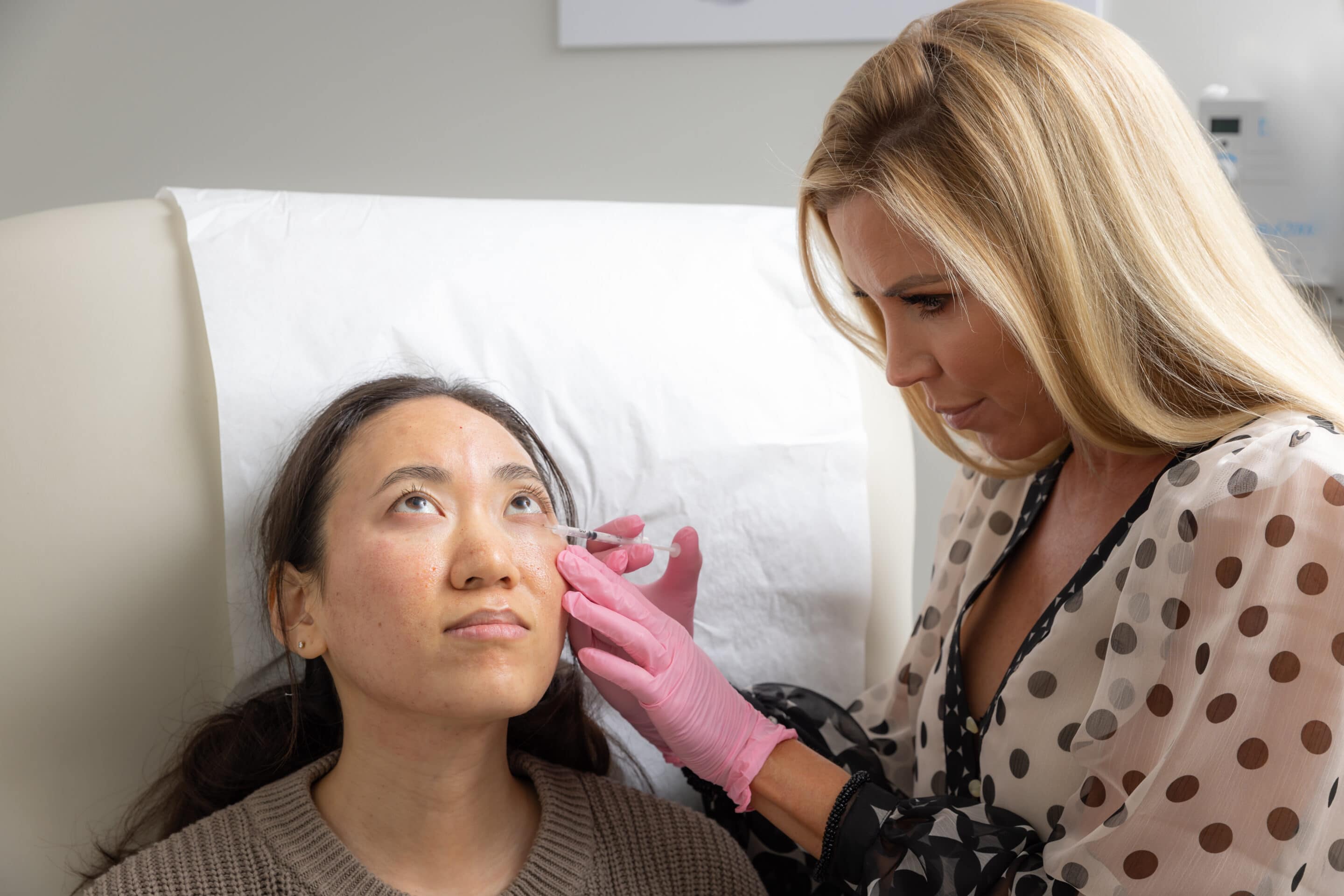
All clinical trials at Armstrong MD are supported by pharmaceutical companies and government agencies. Our Center is dedicated to providing innovative treatments and excellent personalized care for our patients. We are available to evaluate patients that are referred by physicians as well as those who refer themselves.
What Is A Clinical Trial?
Clinical trials are studies that evaluate the safety and effectiveness of drugs, medical devices or other medical treatments when tested on human beings. Clinical trials follow a defined study plan known as a protocol. Clinical trials are conducted by medical personnel, such as doctors and nurses. Doctors who conduct clinical trials are also called investigators.
What Happens During A Clinical Trial?
What happens in a clinical trial depends on the trial itself. In some clinical trials, there may be more tests and trial-related visits than you would normally have for a particular illness or medical condition. As a qualified volunteer for a study, you will receive all medical visits related to the study at no cost. These can include physical exams, doctor visits, study medications, laboratory tests, EKGs, etc. These additional medical tests and clinic visits help site staff monitor your general health and safety throughout the trial carefully.
Phases Of A Clinical Trial
Clinical trials are conducted in phases. The trials at each phase have a different purpose and help scientists answer different questions:
- In Phase I clinical trials, researchers test a new drug or treatment in a small group of people (20-80) for the first time to evaluate its safety, determine a safe dosage range, and identify side effects.
- In Phase II clinical trials, the study drug or treatment is given to a larger group of people (40-100) to see if it is effective and to further evaluate its safety.
- In Phase III studies, the study drug or treatment is given to large groups of people (more than 200) to further determine its effectiveness, monitor side effects, compare it to commonly used treatments, and collect information that will allow the drug or treatment to be used safely.
- In Phase IV, studies are done after the drug or treatment has been marketed. These studies continue testing the study drug or treatment to collect information about their effect on various populations and any side effects associated with long-term use.
Patients’ Rights & Patient Safety
The protection of your safety and rights are essential to conducting a clinical trial. The Institutional Review Board (IRB) must grant approval to any doctor conducting a clinical trial. They also examine all study protocols to ensure patients’ rights are protected and that the research studies in no way present undue risk.
Clinical trials are conducted according to strict scientific and ethical principles. The same ethical and legal codes that govern medical practice apply to clinical trials. It is important that volunteers are well-informed and feel confident and secure about participating in clinical trials.
Can I Continue to Work with My Primary Health Care Provider During A
Clinical Trial?
Yes, most clinical trials provide short-term treatments related to a designated illness or medical condition, but do not provide extended or complete primary health care. In addition, by having your primary health care provider work with the site staff, you can help ensure that other medications or medical treatments will not conflict with the protocol.
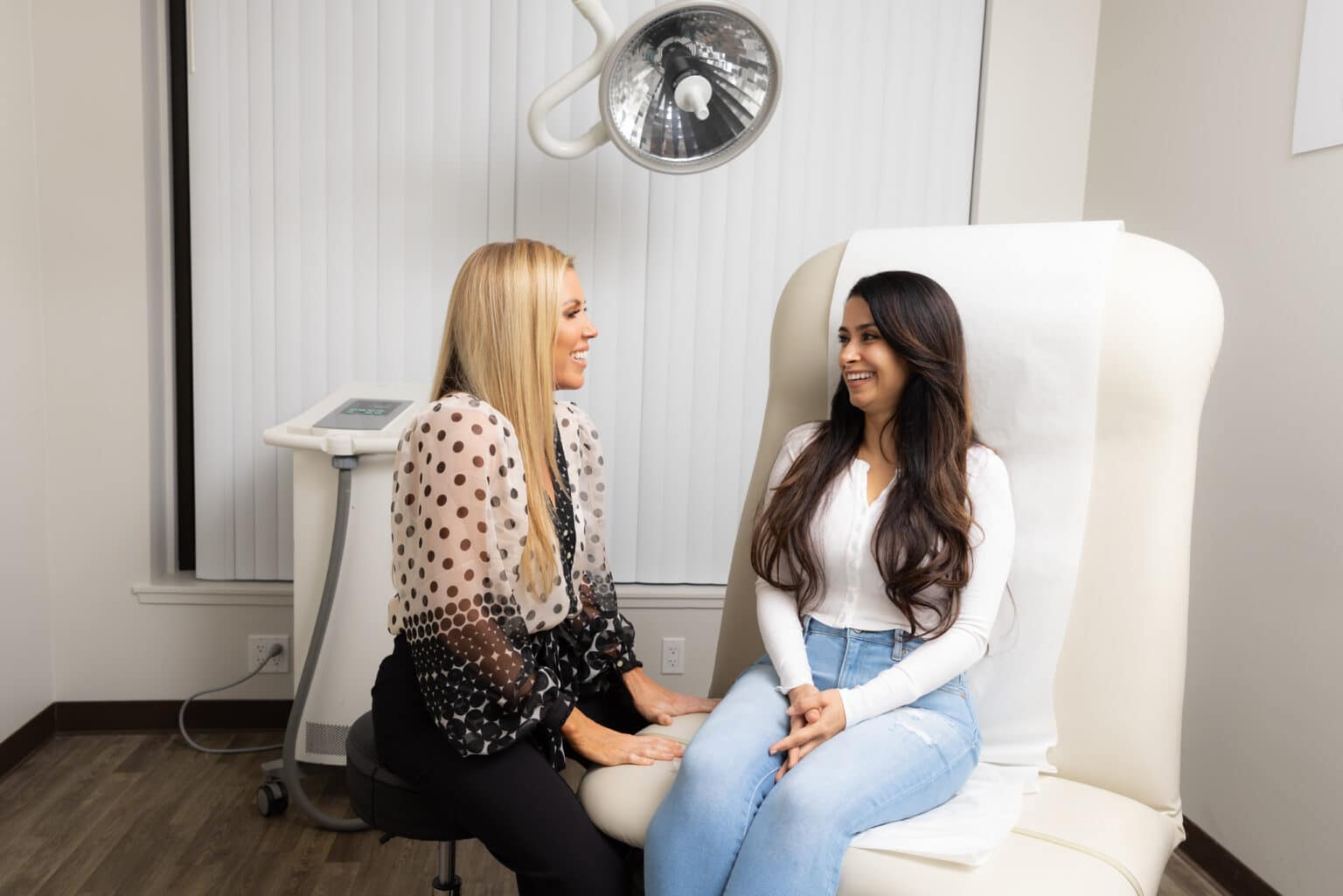
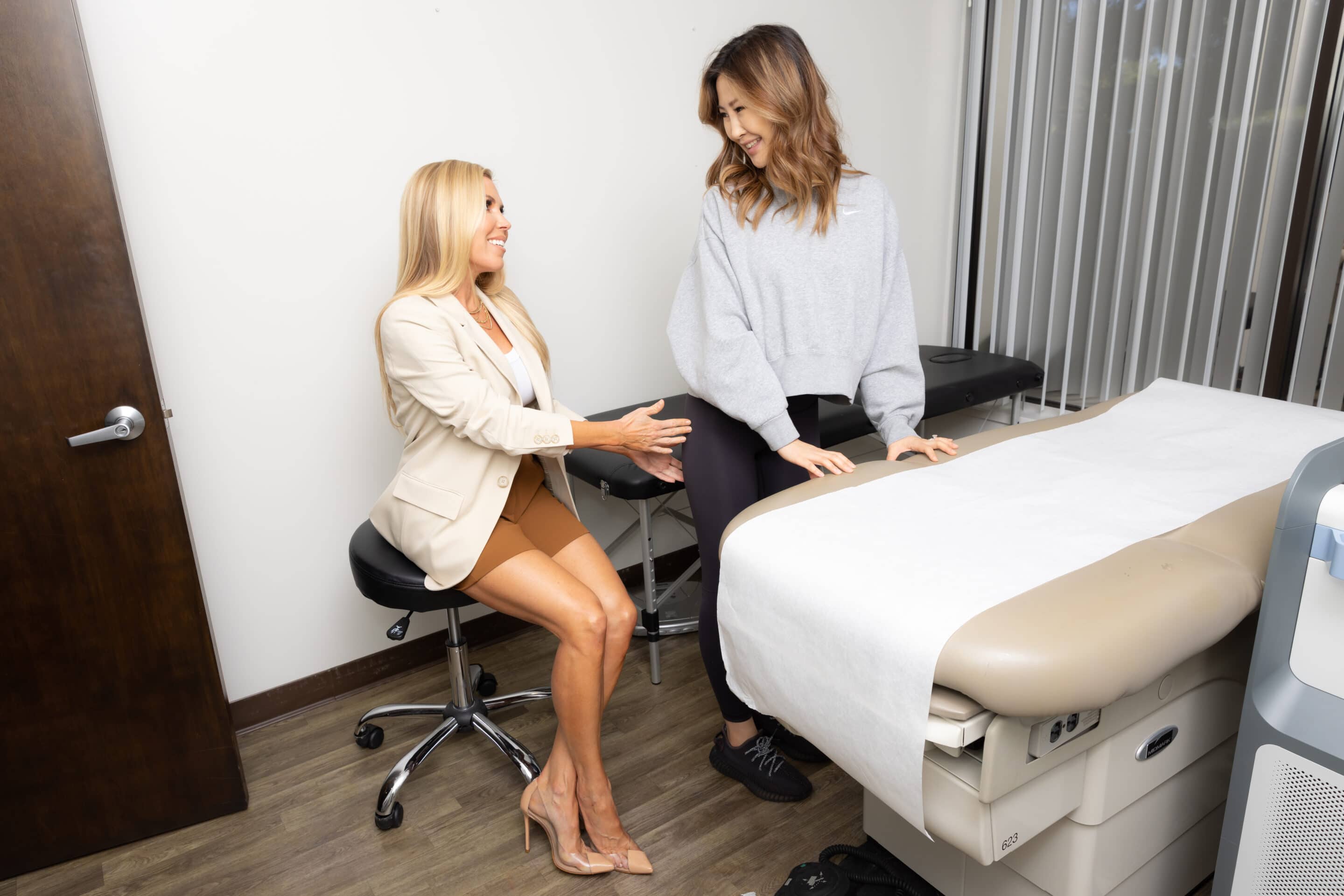
What Should I Know Before Participating In A Clinical Trial?
The investigator or clinical research coordinator will provide you with detailed information about the trial to allow you to decide whether or not to participate. The process of understanding the risks and benefits of a trial is known as informed consent. The doctor will continue to keep you informed throughout the trial and will provide you with up-to-date information.
The investigator will provide an informed consent document that includes details about the study, such as:
- Purpose of the research
- Trial duration / how long it lasts
- Details about the investigational treatment
- Medical tests and procedures required by the trial
- Key trial contacts
- Risks of participation
- Potential benefits of participation
You should know as much as you can about the trial and feel comfortable asking your doctor any questions you may have related to the trial. Once you are comfortable with your understanding of what’s involved, you will have the opportunity to decide whether or not to sign the informed consent document, stating that you are willing to participate. However, keep in mind that the informed consent document is not a contract and you may withdraw from the clinical trial at any time and for any reason.
What Are Your Responsibilities?
Once you sign the Informed Consent form, you will be given the study drug and the placebo. It is important that you keep taking both medications each day. If you don’t take both drugs then we won’t know if the drug is working. You need to take it with your other prescribed medications. Also, it is your responsibility to attend all follow-up visits. That way, we can keep track of how you’re doing. You can also use this time to get any answers to any questions you may have.
Reasons to Participate
A new drug must be tested extensively prior to being made available to the public. Most of our current information on medications on the market and disease have been obtained from clinical research studies. New drugs are being developed daily and may offer advantages over existing ones. There are many reasons why people volunteer to participate in clinical trials, including:
- Opportunity to help those who suffer from medical conditions
- Access to investigational treatments before they become widely available
- Ability to take a more active role in their own healthcare
- Access to free physical examinations and diagnostic tests related to the study
- Potential compensation for time and travel related to the trial
Our Sponsors
Read about our current trials, enrolling in a trial, and the conditions that each trial medication or system aims to resolve.
Current Trials
Read about our current trials, enrolling in a trial, and the conditions that each trial medication or system aims to resolve.


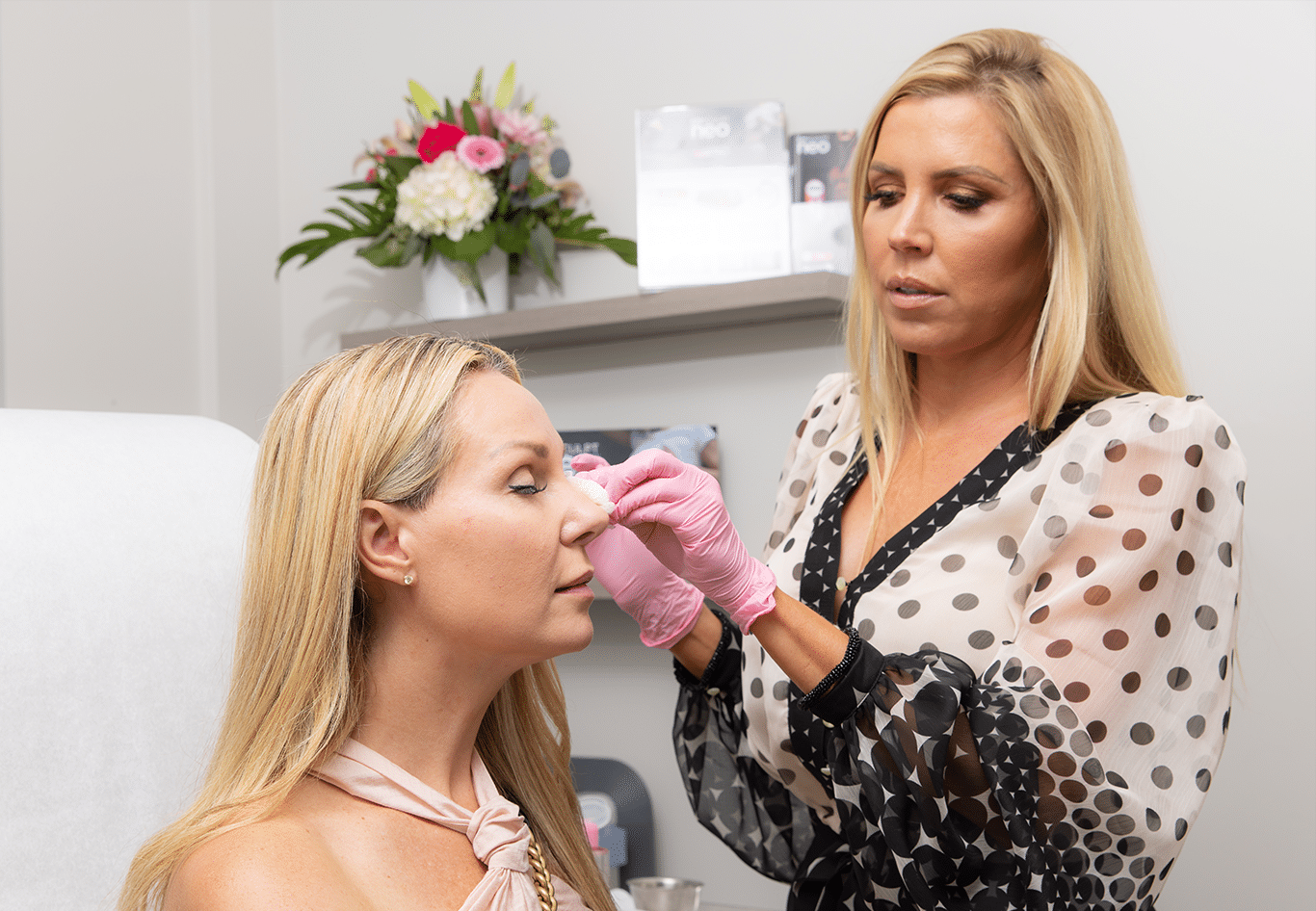

Also Read About
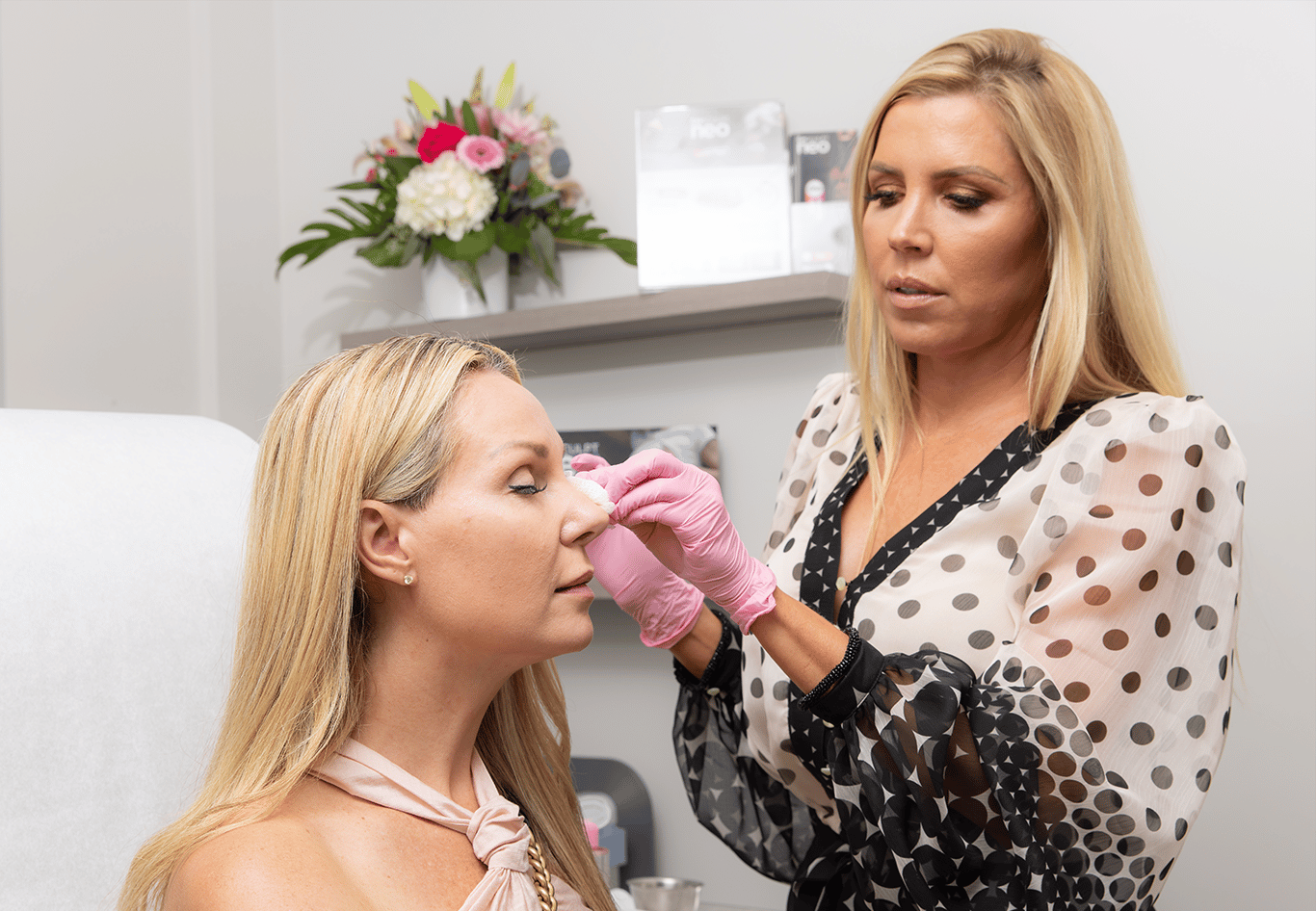
BOTOXⓇ AS PREVENTIVE MEDICINE FOR CROW’S FEET AND FROWN LINES
As skin rejuvenation treatments become more and more effective, women and men of all ages are realizing that they’re not just good for reversing the signs of aging, but also for preventing them.
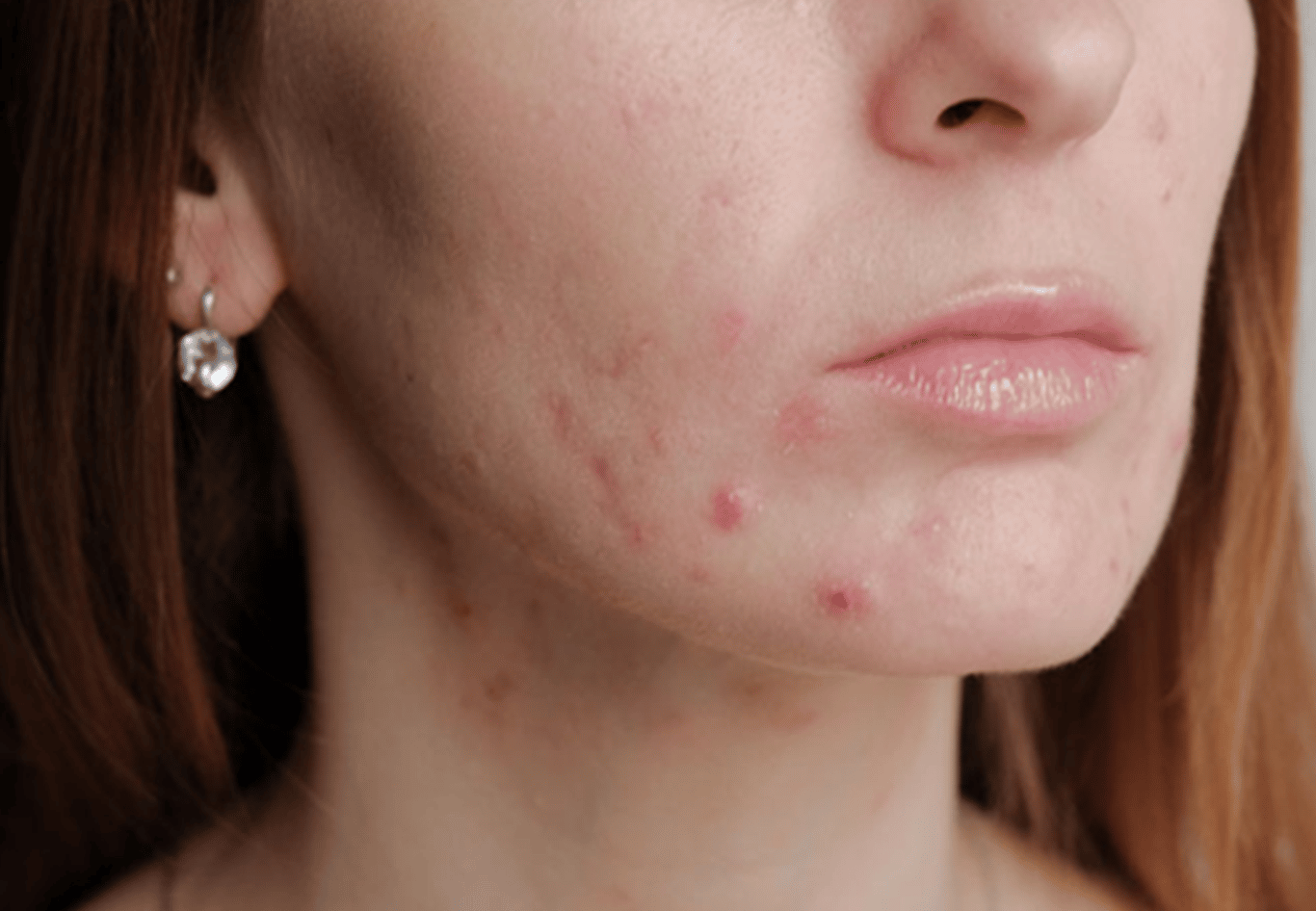
ACNE
A common question from patients is what causes acne and how do I get rid of it? The answer is: there are many different causes. Hormonal effects are the most common cause of acne.
MICRONEEDLING FOR ACNE SCARRING
If you struggle with acne scarring and won’t leave the house without camouflage makeup, microneedling may be for you. The scarring that is most amenable to skin needling is called atrophic scarring, which is the most common type of acne scarring.
BALANCE
BALANCE
Non-Invasive • Drug-Free • Emsella Chair
Dr. Jennifer Armstrong looks at the entire person when treating patients in order to help them achieve balance throughout their body. When our body is in balance, our life is in balance. At our state-of-the-art facility, we offer alternative, non-invasive treatments for hormone balance, migraines, depression, anxiety, and other health conditions to help patients be their best self.
BEAUTY
BEAUTY
Botox Cosmetic • Dermal Fillers • Lasers • Skincare
At ArmstrongMD, beauty is never one-size-fits-all. We offer a complete range of injectable and laser devices, as well as medical-grade skincare, to enhance your natural beauty and help you achieve your aesthetic goals with the latest treatments in cosmetic dermatology.
BODY
BODY
EmSculpt Neo • Brazilian Butt Lift • Hair Restoration
Dr. Armstrong is a trained aesthetic medicine specialist and surgeon who performs all types of body contouring and sculpting treatments, including the non-surgical Brazilian butt lift, deoxycholic acid fat loss, and EMSCULPT NEO muscle-building and fat-reduction treatments.
BALANCE
Non-Invasive • Drug-Free • Emsella Chair
Dr. Jennifer Armstrong looks at the entire person when treating patients in order to help them achieve balance throughout their body. When our body is in balance, our life is in balance. At our state-of-the-art facility, we offer alternative, non-invasive treatments for hormone balance, migraines, depression, anxiety, and other health conditions to help patients be their best self.
BALANCE
Non-Invasive • Drug-Free • Fast Relief
Dr. Jennifer Armstrong looks at the entire person when treating patients in order to help them achieve balance throughout their body. When our body is in balance, our life is in balance. At our state-of-the-art facility, we offer alternative, non-invasive treatments for hormone balance, migraines, depression, anxiety, and other health conditions to help patients be their best self.
BEAUTY
Botox Cosmetic • Dermal Fillers • Lasers • Skincare
At ArmstrongMD, beauty is never one-size-fits-all. We offer a complete range of injectable and laser devices, as well as medical-grade skincare, to enhance your natural beauty and help you achieve your aesthetic goals with the latest treatments in cosmetic dermatology.
BEAUTY
Botox Cosmetic • Dermal Fillers • Lasers • Skincare
At ArmstrongMD, beauty is never one-size-fits-all. We offer a complete range of injectable and laser devices, as well as medical-grade skincare, to enhance your natural beauty and help you achieve your aesthetic goals with the latest treatments in cosmetic dermatology.
BODY
EmSculpt Neo • Brazilian Butt Lift • Hair Restoration
Dr. Armstrong is a trained aesthetic medicine specialist and surgeon who performs all types of body contouring and sculpting treatments, including the non-surgical Brazilian butt lift, deoxycholic acid fat loss, and EMSCULPT NEO muscle-building and fat-reduction treatments.
BODY
EmSculpt Neo • Brazilian Butt Lift • Hair Restoration
Dr. Armstrong is a trained aesthetic medicine specialist and surgeon who performs all types of body contouring and sculpting treatments, including the non-surgical Brazilian butt lift, deoxycholic acid fat loss, and EMSCULPT NEO muscle-building and fat-reduction treatments.
Get Glowing with LaseMD at Armstrong MD
Armstrong MD offers cutting-edge, non-invasive treatments to help you look and feel your best. With LaseMD, you can achieve a radiant, youthful complexion with minimal downtime. Contact us today to schedule your consultation!

